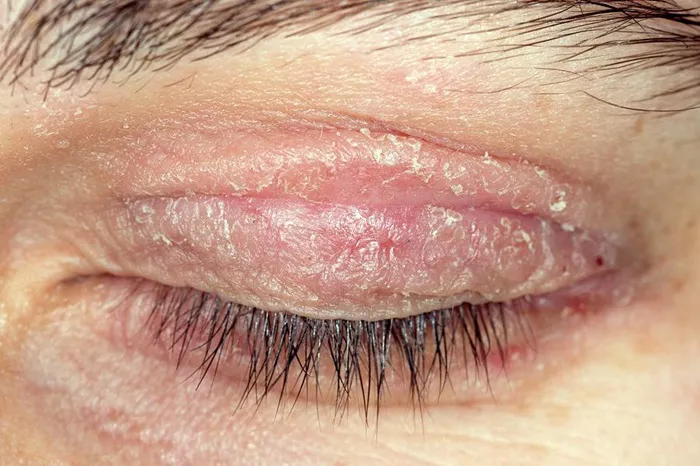Peanut allergy is one of the most common and potentially life-threatening food allergies, affecting millions of individuals worldwide. Understanding the speed at which a peanut allergy reaction occurs is crucial for prompt recognition, treatment, and prevention of severe outcomes. This comprehensive article explores the various factors that influence the speed of peanut allergy reactions, the different types of reactions, and strategies for managing and preventing allergic reactions.
The Nature of Peanut Allergy
Peanut allergy is an immune-mediated response to proteins found in peanuts. When a person with a peanut allergy ingests or comes into contact with peanuts or peanut-containing products, their immune system perceives these proteins as harmful invaders and mounts an allergic reaction.
Types of Peanut Allergic Reactions
Immediate Hypersensitivity (Type I Reaction)
Immediate hypersensitivity reactions, also known as IgE-mediated reactions, occur rapidly after exposure to peanuts. These reactions typically involve the release of histamine and other inflammatory mediators, leading to symptoms that can range from mild to severe.
Delayed Hypersensitivity (Type IV Reaction)
Delayed hypersensitivity reactions, also known as cell-mediated reactions, occur hours to days after exposure to peanuts. These reactions involve activation of certain immune cells and are characterized by a delayed onset of symptoms, often affecting the skin.
Speed of Peanut Allergy Reactions
Immediate Onset Reactions
Immediate hypersensitivity reactions to peanuts typically occur within minutes to hours after exposure. In some cases, symptoms may develop within seconds of ingesting peanuts or peanut-containing foods. The rapid onset of symptoms is due to the release of histamine and other inflammatory mediators triggered by the immune system’s response to peanut proteins.
Delayed Onset Reactions
Delayed hypersensitivity reactions to peanuts can take hours to days to manifest. These reactions involve a different mechanism of immune activation compared to immediate hypersensitivity reactions and are often characterized by skin-related symptoms such as eczema or contact dermatitis.
Factors Influencing Reaction Speed
Several factors can influence the speed at which a peanut allergy reaction occurs:
Sensitivity Level
Individuals with severe peanut allergies may experience rapid onset reactions due to their heightened sensitivity to peanut proteins. Even trace amounts of peanuts can trigger an immediate allergic response in highly sensitive individuals.
Route of Exposure
The route of exposure to peanuts can influence the speed of allergic reactions. Ingestion of peanuts typically leads to faster onset reactions compared to skin contact or inhalation of peanut particles. However, in some cases, inhalation of peanut dust or aerosolized particles can lead to rapid onset respiratory symptoms.
Amount of Exposure
The amount of peanuts ingested or the extent of peanut exposure can impact the severity and speed of allergic reactions. Larger quantities of peanuts are more likely to trigger immediate hypersensitivity reactions, whereas smaller amounts may result in delayed or milder symptoms.
Presence of Other Allergens
In individuals with multiple food allergies or sensitivities, the presence of other allergens alongside peanuts can influence the speed and severity of allergic reactions. Cross-reactivity between peanut proteins and proteins in other foods can exacerbate allergic responses and lead to faster onset reactions.
Previous Sensitization
Individuals who have been previously sensitized to peanuts through prior exposures may experience faster and more severe allergic reactions upon subsequent exposure. Sensitization occurs when the immune system produces specific IgE antibodies in response to peanut proteins, priming the body for an allergic response.
Recognizing Symptoms of Peanut Allergy Reactions
Immediate Hypersensitivity Reaction Symptoms
Immediate hypersensitivity reactions to peanuts can manifest with a wide range of symptoms, including:
1. Skin reactions (hives, itching, redness)
2. Swelling of the lips, tongue, or throat
3. Respiratory symptoms (shortness of breath, wheezing, coughing)
4. Gastrointestinal symptoms (nausea, vomiting, diarrhea)
5. Cardiovascular symptoms (rapid heartbeat, low blood pressure)
6. Anaphylaxis, a severe and potentially life-threatening allergic reaction characterized by a combination of symptoms affecting multiple organ systems.
Delayed Hypersensitivity Reaction Symptoms
Delayed hypersensitivity reactions to peanuts often present with skin-related symptoms, such as:
1. Eczema (red, itchy, inflamed skin)
2. Contact dermatitis (rash, blistering, itching)
3. Skin inflammation or swelling at the site of exposure.
Managing Peanut Allergy Reactions
Immediate Hypersensitivity Reaction Management
Immediate hypersensitivity reactions to peanuts require prompt intervention to prevent progression to anaphylaxis. Management strategies may include:
1. Administering epinephrine (EpiPen) to counteract severe symptoms.
2. Seeking emergency medical attention.
3. Providing supportive care, such as antihistamines for mild symptoms and intravenous fluids for dehydration.
Delayed Hypersensitivity Reaction Management
Delayed hypersensitivity reactions to peanuts are typically milder and self-limiting. Management strategies may include:
1. Applying topical corticosteroids to alleviate skin inflammation.
2. Avoiding further exposure to peanuts or peanut-containing products.
3. Consulting a healthcare professional for persistent or severe symptoms.
Preventing Peanut Allergy Reactions
Avoidance of Peanut Exposure
The most effective way to prevent peanut allergy reactions is to avoid peanuts and peanut-containing products altogether. This may involve:
1. Reading food labels carefully and avoiding foods with potential peanut ingredients.
2. Informing restaurants and food service establishments about your peanut allergy.
3. Educating family members, caregivers, and school personnel about the importance of peanut avoidance.
Carrying Emergency Medications
Individuals with peanut allergies should carry emergency medications, such as epinephrine auto-injectors (EpiPens), at all times. These medications can be life-saving in the event of a severe allergic reaction and should be used as directed by a healthcare professional.
Creating an Allergy Action Plan
Developing an allergy action plan in collaboration with a healthcare provider can help individuals and their caregivers respond quickly and effectively to allergic reactions. The plan should outline steps for recognizing symptoms, administering emergency medications, and seeking medical assistance.
Seeking Allergy Testing and Evaluation
Undergoing allergy testing and evaluation by a qualified allergist can provide valuable information about the specific triggers and severity of peanut allergies. This can guide personalized management strategies and help individuals make informed decisions about their dietary and lifestyle choices.
Conclusion
In conclusion, the speed of peanut allergy reactions can vary depending on various factors, including sensitivity level, route of exposure, amount of exposure, presence of other allergens, and previous sensitization. Immediate hypersensitivity reactions typically occur within minutes to hours of peanut exposure and can range from mild to severe, including anaphylaxis. Delayed hypersensitivity reactions may take hours to days to manifest and often present with skin-related symptoms. Recognizing the symptoms of peanut allergy reactions, managing them promptly and effectively, and implementing preventive measures are essential for protecting individuals with peanut allergies and promoting their overall health and well-being. By understanding the speed of peanut allergy reactions and taking appropriate precautions, individuals can minimize the risk of allergic reactions and lead healthier, safer lives.
[inline_related_posts title=”You Might Be Interested In” title_align=”left” style=”list” number=”6″ align=”none” ids=”9501,9494,9490″ by=”categories” orderby=”rand” order=”DESC” hide_thumb=”no” thumb_right=”no” views=”no” date=”yes” grid_columns=”2″ post_type=”” tax=””]
































